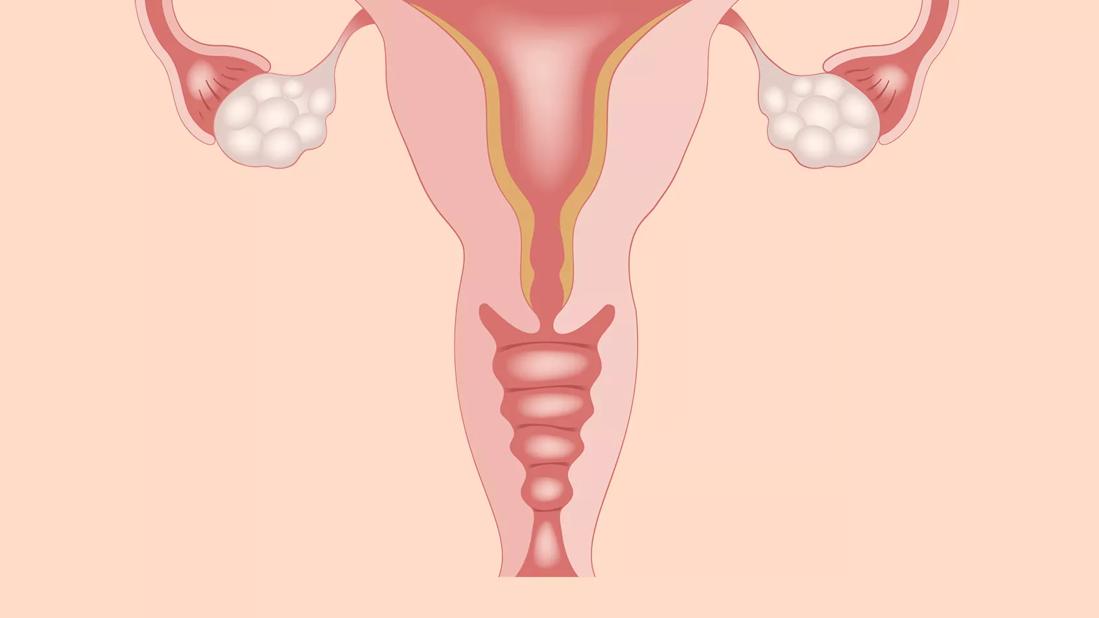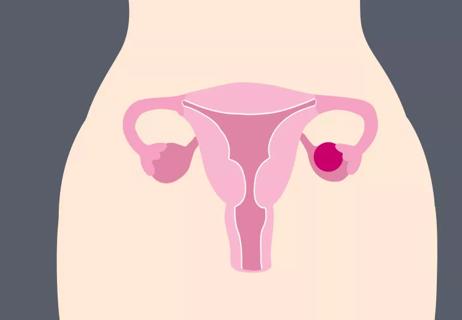Most are harmless and painless

If you’re having abdominal pain or prolonged, intense discomfort that doesn’t seem quite normal, it’s possible you have an ovarian cyst. These small fluid- or tissue-filled pouches on or in your ovaries are actually very common. Here are the signs you might have an ovarian cyst and what you should do if you have one, according to Ob/Gyn Rosanne Kho, MD.
Advertisement
Cleveland Clinic is a non-profit academic medical center. Advertising on our site helps support our mission. We do not endorse non-Cleveland Clinic products or services. Policy
Your ovary normally produces an ovarian cyst with ovulation. When a pregnancy does not occur after ovulation, the ovarian cyst shrinks and goes away. Some people may experience mild pain that lasts one to two days associated with ovulation.
Beyond ovulation, endometriosis and the abnormal reproduction of cells, a pelvic infection like pelvic inflammatory disease (PID) can also cause ovarian cysts.
Ovarian cysts are usually small enough that most people with ovaries don’t even realize they have one. In fact, Dr. Kho says that many cysts are diagnosed incidentally during annual pelvic exams or imaging tests that are performed for another reason. Even cysts that become enlarged often go unnoticed.
“However, if a cyst gets big enough, it may create a feeling of pressure or even pain,” Dr. Kho says.
Most ovarian cysts go away on their own, but if you’re feeling bloated for long periods, this could be a sign you have an ovarian cyst that’s growing. You may also feel a dull aching pain on one side of your lower abdomen, your lower back or your pelvis. Other signs you may have an ovarian cyst include:
Advertisement
“These symptoms can be easy to ignore, and one by itself may not be concerning,” says Dr. Kho. “But if you’re noticing many of these together, that’s a good reason to see your doctor for an evaluation.”
A cyst that bleeds, bursts or causes your ovary to twist on itself (a condition called ovarian torsion) can cause a sudden rise in the severity of pain. Other signs you may have a burst ovarian cyst include:
In most cases, symptoms remain largely the same. But the kind of cysts that can develop in your ovaries are wide-ranging and include the following:
If your doctor finds an ovarian cyst, you’ll most likely have a pelvic ultrasound to see what’s going on, and treatment will depend on your situation. In most cases, it may be best to closely monitor it.
“Depending on the appearance of the cyst, many times, we’ll wait six to eight weeks to see if it goes away on its own,” says Dr. Kho. “A lot of cysts look just like a water balloon. There’s nothing worrisome inside them and they can be present even after menopause. It’s very reasonable just to watch these with an ultrasound every year to make sure they’re not growing.”
Occasionally, a cyst needs to be surgically removed. “There are a few things we look at in a cyst to evaluate whether or not it needs to be removed,” Dr. Kho says. “If it’s causing painful symptoms, we may want to remove it for comfort reasons or out of concern for cancer.”
You may also need surgery if the cyst is very large or if it looks abnormal on the ultrasound. “If, for instance, the cyst has extra solid tissue growing inside it, we’ll usually get tumor marker blood tests. The most common one is cancer antigen 125 (CA125),” says Dr. Kho. “Elevated levels make us more concerned about cancer, especially after menopause.”
Advertisement
If you experience intense pelvic pain, especially if it happens quickly, you need to get help immediately. Since a twisted ovary can reduce or stop blood flow, the sooner you get medical attention, the better chance there is for your ovary to be saved.
For general pelvic pain, “There can be a lot of causes, and sometimes they can be difficult to differentiate. In these cases, it’s best to go see your healthcare provider to see if they can determine the cause of your pain because sometimes it may be serious,” advises Dr. Kho.
Advertisement

Sign up for our Health Essentials emails for expert guidance on nutrition, fitness, sleep, skin care and more.
Learn more about our editorial process.
Advertisement

Severe abdominal pain and fever are two signs

It’s important to angle it toward your rectum or back, along the natural curve of your vaginal canal

To help manage symptoms, switch to more absorbent period products, make healthy lifestyle changes and explore treatment options

Yes, you can pee with a tampon in; no, they won’t stretch out your vagina or make cramps worse!

Estrogen loss contributes to bone loss, which significantly raises your risk of osteopenia and osteoporosis

The little blue pill might help with physical arousal, but there are better treatments for low libido in women

For large breasts, wearing a bra may provide support that helps alleviate back pain — but if you’re comfortable without one, go for it!

They have no proven benefits but can cause infection, damage your pelvic floor muscles and get stuck inside you

Even small moments of time outdoors can help reduce stress, boost mood and restore a sense of calm

A correct prescription helps your eyes see clearly — but as natural changes occur, you may need stronger or different eyeglasses

Both are medical emergencies, but they are very distinct events with different causes